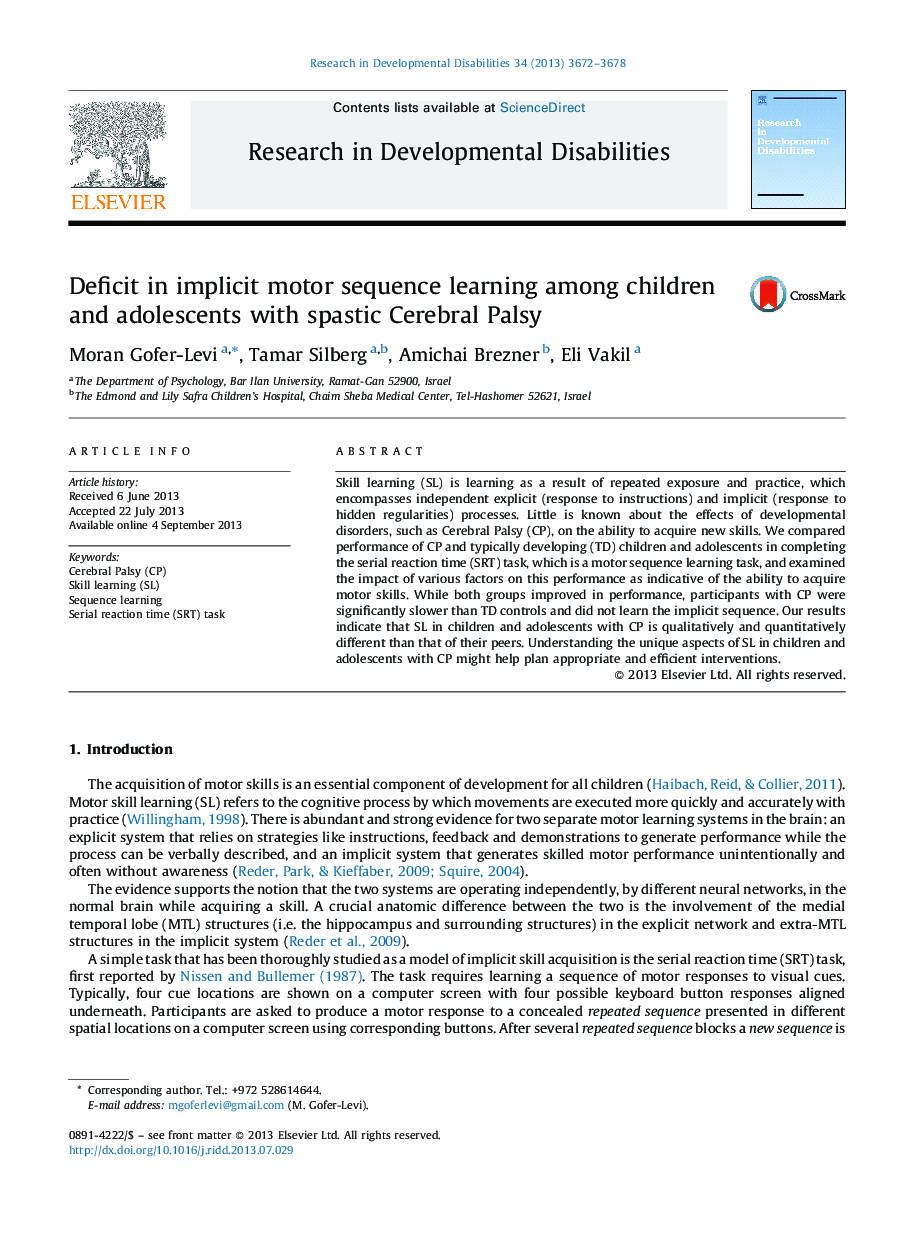| Article ID | Journal | Published Year | Pages | File Type |
|---|---|---|---|---|
| 10317612 | Research in Developmental Disabilities | 2013 | 7 Pages |
Abstract
Skill learning (SL) is learning as a result of repeated exposure and practice, which encompasses independent explicit (response to instructions) and implicit (response to hidden regularities) processes. Little is known about the effects of developmental disorders, such as Cerebral Palsy (CP), on the ability to acquire new skills. We compared performance of CP and typically developing (TD) children and adolescents in completing the serial reaction time (SRT) task, which is a motor sequence learning task, and examined the impact of various factors on this performance as indicative of the ability to acquire motor skills. While both groups improved in performance, participants with CP were significantly slower than TD controls and did not learn the implicit sequence. Our results indicate that SL in children and adolescents with CP is qualitatively and quantitatively different than that of their peers. Understanding the unique aspects of SL in children and adolescents with CP might help plan appropriate and efficient interventions.
Keywords
Related Topics
Life Sciences
Neuroscience
Behavioral Neuroscience
Authors
Moran Gofer-Levi, Tamar Silberg, Amichai Brezner, Eli Vakil,
